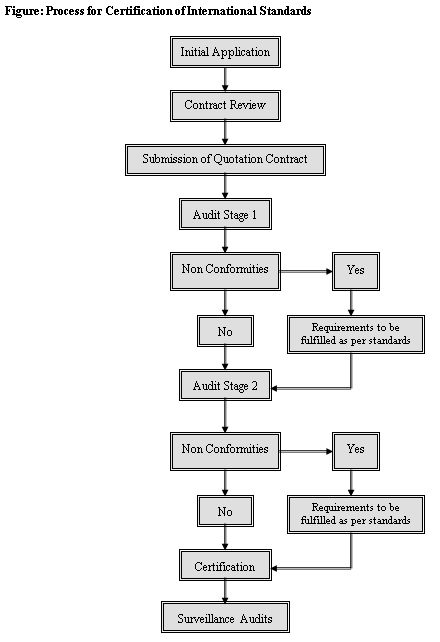|
In post WTO era, sectors of Pakistani economy particularly industry, agriculture and services are increasingly exposed to various challenges. One of the major challenges for low income countries towards adopting the path of sustainable development is the limited enterprise capacity to comply with the international buyers’ requirements. International buyers are increasingly demanding compliance on quality, safety, environment and social standards. Compliance to international and national standards promotes enterprise efficiency and competitiveness through international trade, protects consumers’ rights of health and safety and in turn leads to socio economic development of economy. Non compliance to these requirements often results in loss of business. The following FAQs provide information regarding the process of compliance, requirements and institutional support (capacity building, financial assistance, consultancy, certification and accreditation etc.) available in Pakistan. F A Qs
Compliance to international standards on quality, environment and social accountability has been universally recognized as one of the key strategic elements of product competitiveness in both domestic and international markets, along with price and delivery factors. Quality is the pre-requisite for successful market access and for achieving continued customer satisfaction. The Standards and Quality Management program address the quality related needs of exporters and concentrate on institutional and capacity development in the export quality management. 2. What is the process for obtaining certification of international standards? It depends on certificate requirements and complexity of the situation; generally 4 to 6 months are required to complete the process of obtaining certification. 3. How much time is required to get certified? It depends on certificate requirements and complexity of the situation; generally 4 to 6 months are required to complete the process of obtaining certification. The certification firms give quotation of their services in regard of any certification considering the following factors
Certification cost may range from Rs. 50,000 to Rs. 300,000. Moreover, consultancy services for certification if required may cost ranging from Rs. 100,000 to Rs. 300,000 depending upon the above mentioned factors. Consultancy may not be required if the staff is competent for carrying out the requirements of implementation of a standard. List of certification bodies in Pakistan is given on website of Pakistan National Accreditation Council - PNAC www.pnac.org.pk 6. What sort of government support in compliance related activities is available for local SMEs? Government provides support for capacity building, financial assistance through matching grants, accreditation and certification for local SMEs in order to make them competitive. Available support/information/requirements for compliance related activities given in the related website links as mentioned below;
7. Which are other relevant websites?
|



